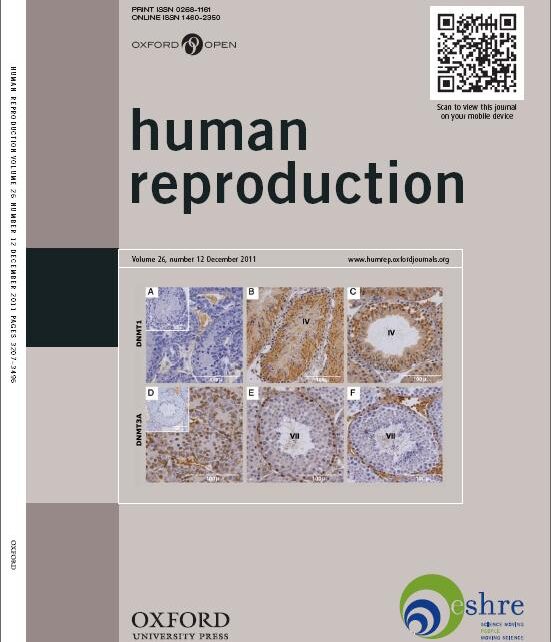NEW PUBLICATION IN “HUMAN REPRODUCTION”
24-01-2012

Intermediate and normal sized CGG repeated on the FMR1 gene does not negatively affect donor ovarian response
This study was recently published in the prestigious international journal, Human Reproduction, which is the official publication of ESHRE (European Society of Human Reproduction and Embryology) with the greatest scientific impact on Reproductive Medicine.
Ovarian stimulation is one of the main factors that affect the success of assisted reproduction treatments, since obtaining a suitable number of eggs is essential for selecting the embryo with the highest implantation capacity, which leads to an ongoing pregnancy.
Many efforts have been made to establish which variables determine adequate ovarian response. A large part of the research has been done to develop medicine that achieves a higher number of eggs. In fact, there are many drugs available for assisted reproduction treatments. However, pharmacogenetics, which determines the genetic basis of individual responses to the same treatment, has recently found that certain genetic factors influence the ovarian response.
Along these lines, the FMR1 gene involved in causing Fragile-X syndrome also affects the ovarian reserve and therefore the response to stimulation. The Instituto Bernabeu group has studied how the expansion of the gene within a normal range may affect ovarian stimulation. Our work has not observed differences between patients in terms of this genetic factor affecting the success of assisted reproduction treatments.
Instituto Bernabeu aims to provide personalised solutions of different assisted reproduction treatments, especially in cases of poor ovarian response. We have recently created a multidisciplinary group of specialists at Instituto Bernabeu designed to treat these patients. The research work covered in this scientific study is a result of this effort.
